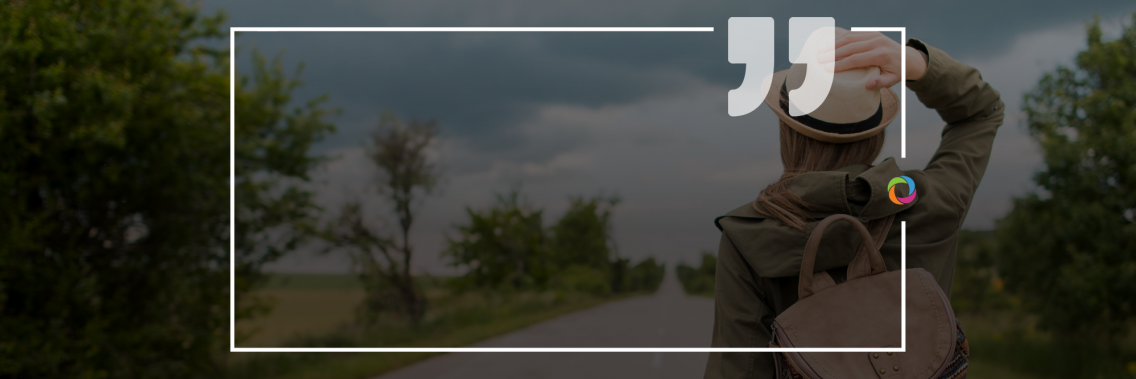When talking about tourism, we imagine people living their lives travelling from one airport to another. Working in tourism area is fascinating and also challenging, especially in these difficult times. On 27th of September, we mark the World Tourism Day and, and on this special day, we decided to share the experience of some international tourism experts with the entire international aid community.
When and how did you decide to work in tourism?

“In 2003 I was the Regional Director for the Eurasia Foundation based in Kyiv and covering Ukraine, Belarus and Moldova. At the time, the Eurasia Foundation had three mandates, one of which was to support economic development. Our team decided to provide small grants to organizations supporting small businesses to develop what was then called “Green Tourism”. Some of the same small businesses, supported by NGOs, still operate in Ukraine. It was only in 2010 that I decided to develop a regionally focused, participatory and financially stable program.”

“When I graduated from the engineering school, I started to apply to large national companies including the flag-carrier and to start, I was hired for operational jobs: ground operations and Technical division. It was much later in my career that I started to work in tourism when I was appointed country manager of the company for the Swiss market. There, I discovered the sector and absolutely adored it!”

“From my mid-teens, I always had an interest in the tourism sector. However, it was only when I was at university and came across a Masters of Tourism course that I realized the career possibilities. My first real job in tourism was working for the Australian Department of Tourism at Taejon World Expo in Korea in 1993.”

“I come from a family of 8 children including 5 girls and 3 boys. I am the fifth child in the family and the oldest one of the boys. Throughout his professional career, my father worked as Ecogardes in Virunga National Park. I grew up in the Park and experienced the madness of tourism at the Ishango Tourist Site. It was the desire to follow in my father’s footsteps and the tourist atmosphere that prompted me to take environmental studies. I have been working in the environmental field since 2004.”

“My brother was an opera singer and worked in a new accommodation business in exchange for free vocal coaching from the owner who had just returned from New York. They needed some administration support for a few hours a day and he asked me to help out. I ended up quitting my full-time job as a civil servant three months later and moved up through the ranks to General Manager over a 12 year period. After that I stayed in tourism and hospitality and, 25 years later, I am still in the industry after working in different businesses throughout the Pacific.”
How is tourism linked to international development?

“Tourism is a key economic sector for many countries. It impacts upon many components of the UN SDGs as, when implemented sustainably, it protects the environment, preserves local cultures and improves livelihoods. All too often, development agencies do not take this into consideration and only focus on quantity rather than quality, separating tourism from other economic, environmental and social concerns.”

“Tourism has an important role to play in international development as it generates a significant number of jobs, particularly for women and youth. Being labor intensive, it has relatively low barriers of entry for service-level jobs as well as the micro and small businesses that service the sector. Tourism development, done responsibly, can help maintain areas of high conservation value and protect local culture by helping local governments and communities understand the economic benefits that tourism can bring. Tourism is also an effective transfer of wealth with high levels of visitors from wealthier countries to developing nations.”

“Tourism allows rural communities to participate in activities and seek opportunities that contribute directly to their economic wellbeing and livelihoods. They are able to share their own uniqueness through experiences, culture, handicrafts and products with visitors in an authentic meaningful way. This generates income and creates employment for a nation. On a national level, the inflow of foreign exchange from visitors and taxation provides revenue to enable development and investment in infrastructure and marketing.”
What skills are necessary to be a tourist worker?

“Managerial skills, the ability to analyze market issues, integrity, mastery of statistical tools for tourism, mastery of the main international languages, marketing skills, skills in transport logistics, the sense of listening, credibility, availability, love of work.”

“The main skills to have for being a tourist worker are: organizational skills: you have to have a great sense of organization, be comfortable with planning schedules, and strict adherence to deadlines; knowing how to manage stress: in tourism, we are never immune from operational disruption or last-minute changes. You have to know in these cases, keep calm and find alternative solutions urgently.”

“Passion, enthusiasm, a love of people and your own culture and experience and dedication to service.”
What are some of the most memorable experiences of your work?

“Memorable experiences happen every year. The first was the success of the Green Tourism grant program in Ukraine in 2003. In the six-month pilot, and for a total of about $40,000 in small grants, four new firms were launched (all of which still exist) and about 40 jobs created. It showed what could be accomplished using a ground-up approach without spending millions. Another was the launch of our own Black Sea Sustainable Rural Tourism Program in 2014. We initiated this as a program over an entire region that will be a permanent, financially sustainable network of rural destinations implementing GSTC criteria with the active participation of communities. After three years of country analyses in Georgia, Turkey and Ukraine, attracting rural communities as active participants not just beneficiaries as well as after some setbacks and delays, we identified communities ready to take part. Our web portal was designed by students in Georgia and launched in late 2019.”

“I have loved the opportunity to work in areas that were not yet on the tourism trail such as in northern Vietnam or in Aceh in Indonesia. I’ve also loved the opportunity to talk to households where tourism projects that I’ve been working on have transformed lives such as being able to send their children to university.”

“The most memorable experience I have had in the face of tourism is the atmosphere experienced with more than 800 tourists at the Ishango tourist site during my youth up to 1994. After these tourists’ two-month vacation, a dance party was always organized on the eve of the return trip for them and it was a moment of unforgettable memories and the sharing of gifts.”

“The best experiences are generally linked to the positive feedback from clients but if I had to mention one in particular, I had loved organizing a short FamTrip for 3 young photographers and influencers in Casablanca and Rabat in 2019. I had accompanied the time of a short weekend and I was very proud to see again and rediscover the beauty of the places through their eyes!”
How has the pandemic and the lockdowns affected tourism and how do you see its revival?

“The effect of the COVID pandemic is costing 1 million jobs a day in the tourism value chain. Mass tourism, however, has vanished and will not return any time soon. Our approach of sustainable tourism targeting rural areas rich in culture and the environment is the one that will attract the first travelers as they return slowly to the market. Tourism will never be the same and more attention will be paid to personalized experiences, no crowds and more interest in nature. Health and safety for accommodation will be paramount.”

“The pandemic has meant our borders are closed to international tourism. It has driven us to look at the domestic market and adjust prices and experiences to cater for their needs and budgets. Doing this means that we are able to keep busy, keep staff employed and ensure continuity of business to keep the bank happy!”

“The sector has suffered from everything we have been going through since March. Globally, people now travel only for family reasons or medical emergencies. Business trips are almost nil and we noted a small traffic of tourists this summer, it is mainly young people who either stayed in Europe (from Europe) for rather short stays, or people who went for local trips in their countries. I don’t think the recovery is coming soon. The traumas are still present in the minds and I think it will take at least 3 years to resume an activity at the same level as 2019, if the pandemic subsides and the global economic situation restarts.”
What are your comments about the theme of World Tourism Day 2020: Building Peace?

“Given the current international tensions, the Building Peace theme of World Tourism Day 2020 highlights the important people to people links that tourism can generate.”

“The theme is very good but, in the context of DR Congo my country, this theme requires much effort to be translated into something concrete. Poverty and the scarcity of employment opportunities are the sources of the destruction of peace. It is difficult to make peace with one who is full while you are on fire. However, the development of international tourism as a source of economic recovery and job creation is one of the pillars of peace building in Africa.”
What is your advice for those who want to follow your career path?

“Development in the tourism sector requires patience, particularly within the sustainable tourism environment for those both in government and the local population who are used to mass tourism. Anyone involved must develop a solid knowledge of the local environment, attitudes and culture. It is important to learn as much about sustainable approaches as possible and not impose pre-conceived notions on destinations but rather to encourage and implement a participatory approach.”

“Given the broad range of opportunities available in the sector, it is great to reach out to as many people as you can to learn more and build networks. Volunteering is also a good way to get that first opportunity.”

“I strongly encourage those who want to follow in my footsteps to invest more in this area in order to make the tourism sector a lifeblood for job creation and development in the world. Tourism is more of a school and its products and services are sustainable over the long term. This is a sector where everyone benefits directly or indirectly from its advantages but it must also be ensured that tourism is not always to be seen as a product to be consumed by foreigners but rather by locals as well.”

“Passion for your land, culture and people and the belief and willingness to share its uniqueness will keep you focused.”
Check all the jobs available on the DevelopmentAid platform in tourism sector here.

